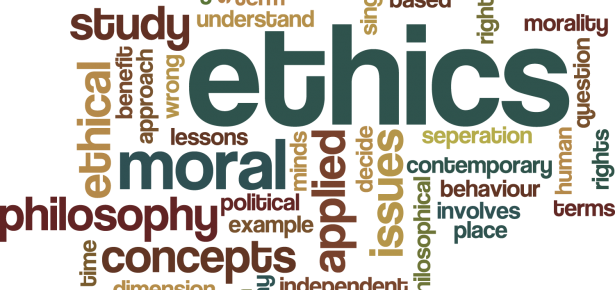
In our graduate school years, neither of us recalls receiving any training, at least explicitly, in the ethics of being a behavioral scientist (and a university faculty member). Yet, each of us has seen careers go up in flames over violations of ethics and each of us has had to face ethical challenges that we never would have anticipated when we started out our careers. Some of the challenges we have faced are suspect data analyses by collaborators, collaborators who don’t want to do the work but do want to receive authorship credit, collaborators who spend grant monies in questionable ways, a grant monitor who wanted one of us to analyze the monitor’s dissertation data—really, the list goes on and on.
Ethical challenges are not rare: What department does not have faculty members who frequently seem to be at or even over the borderlines of ethical behavior? For example, one of us has seen more than one faculty member who collaborated with students but somehow almost always seemed to end up first or even sole author on the resulting publications.
We decided to edit Ethical Challenges in the Behavioral and Brain Sciences because we have concluded that few things are more important in the behavioral and brain sciences than an understanding of ethical challenges in the field, but few things are less systematically taught to future behavioral and brain scientists during their graduate-school years. A career may sputter for a lack of creativity or a lack of analytical prowess, but it won’t go up in flames the way it will for a lack of ethics. Moreover, what we have seen is that levels of ethical behavior do not seem to correlate with levels of creativity or analytical rigor: Some of the scholars caught up in ethical scandals have had stellar careers until…they didn’t.
So the two of us, Sternberg as past-president and Fiske as president of the Federation of Associations in the Behavioral and Brain Sciences (FABBS) decided to edit a book on Ethical Challenges in the Behavioral and Brain Sciences. We sought as contributors elected fellows of a major organization in psychological science—people whose experience in the field would be broad and deep enough that they might have had time to think about ethical issues. We immediately thought of Cambridge University Press, as we have had many excellent publishing experiences with them.
The 69 essays in the book are divided into 11 parts: Academic Cheating; Academic Excuses and Fairness; Authorship and Credit; Confidentiality’s Limits; Data Analysis, Reporting, and Sharing; Designing Research; Fabricating Data; Human Subjects; Personnel Decisions; Reviewing and Editing; and Science for Hire and Conflict of Interest. There also is a preface and an epilogue putting the various essays into a perspective. We had expected the essays to be interesting, but when we got them, we had trouble putting them down. We learned that we scientists all face the same ethical challenges, and some scientists come up with innovative and even ingenious ways of addressing them. We are both planning to use the book in our separate universities as a main text for a graduate seminar on scientific ethics.
Latest Comments
Have your say!